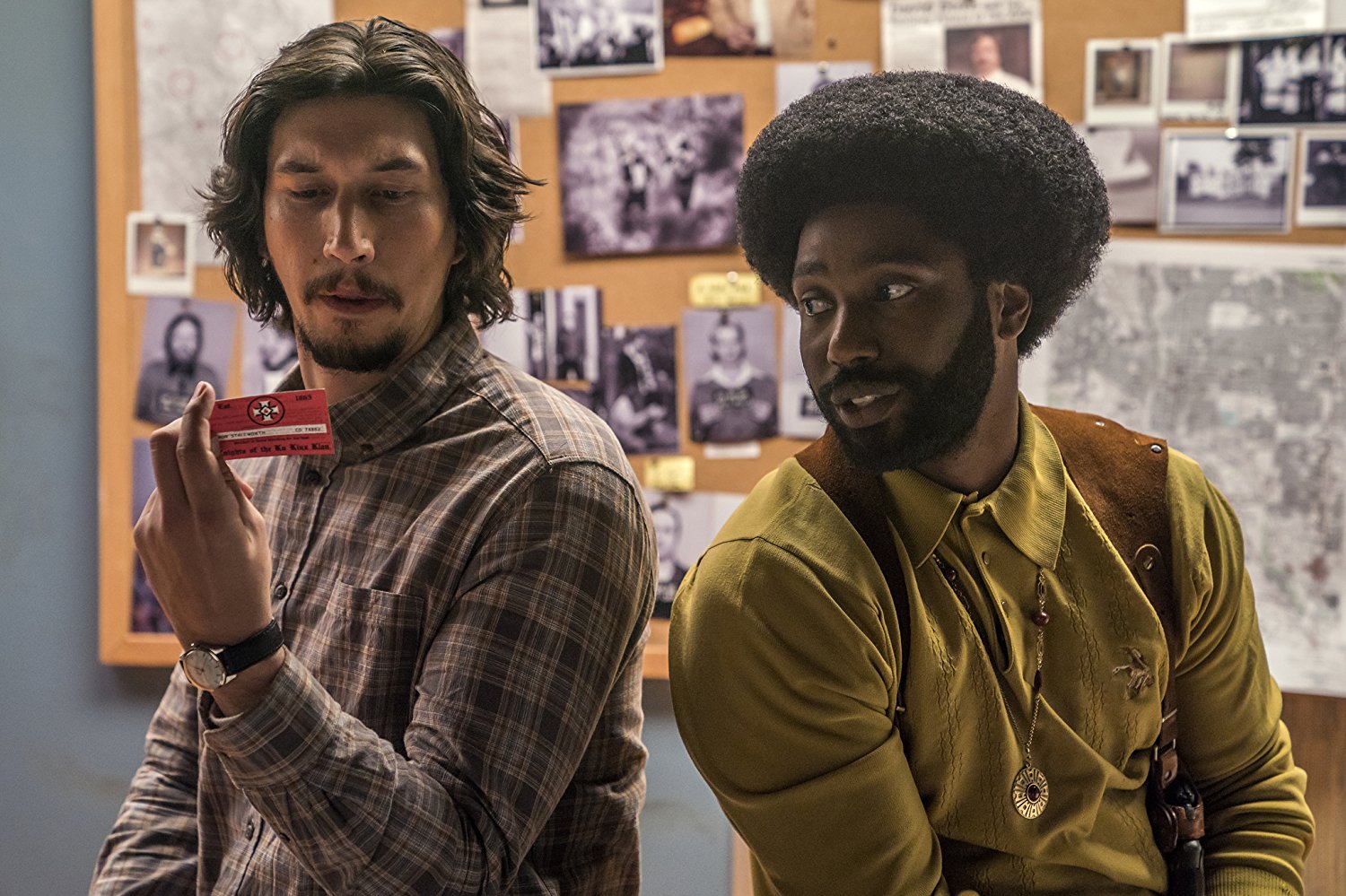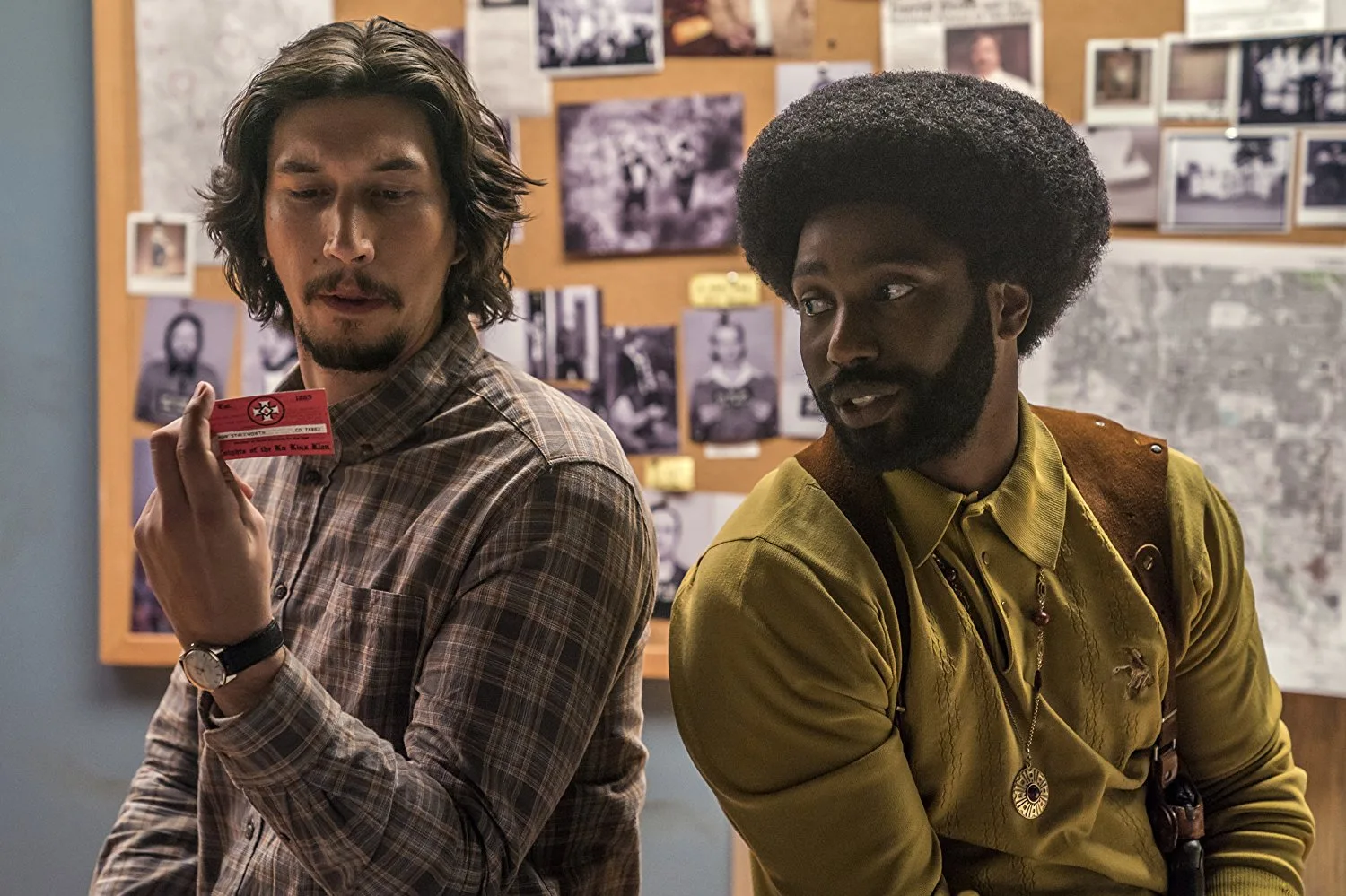BlacKkKlansman

A black police officer infiltrates the Ku Klux Klan in BlacKkKlansman. In 1972 Colorado Springs, Ron Stallworth (John David Washington) becomes the first black man to become a police officer at the Colorado Springs Police Department. At first regulated to the records room, Ron eventually gets himself reassigned to the intelligence division. It is there that Ron spontaneously answers a recruitment ad in the newspaper by a local chapter of the Ku Klux Klan, with Ron pretending on the phone to be a racist white man. When the members of the Klan arrange a meeting, undercover officer Flip Zimmerman (Adam Driver) is sent in Ron’s place. Together, they infiltrate deeper into the KKK, even getting into communication with the Grand Wizard David Duke (Topher Grace).
BlacKkKlansman is the latest film from director Spike Lee, based on the 2014 memoirs by Ron Stallworth, who is played in the film by John David Washington. Throughout the film, Ron is conflicted between his desire to be a police officer, while also wanting to participate in the civil rights movement. This is shown through Ron’s relationship with activist Patrice Dumas (Laura Harrier), who he meets while undercover at a rally. There is also the complicated relationship Ron has with his partner Flip Zimmerman, a Jewish detective who becomes Ron’s surrogate in the KKK and arouses the suspicions of radicalized member Felix Kendrickson (Jasper Pääkkönen).
Arriving one year 2017 Unite the Right rally in Charlottesville, Virginia, BlacKkKlansman can be viewed as both a darkly humorous satire and a scathing reflection on the history of racism in America. Despite the 1970s setting, BlacKkKlansman is a film that is really meant to be viewed with modern eyes, with lines of dialogue containing ironic allusions to the current political situation in the United States. In fact, it is probably the final minutes of BlacKkKlansman, which directly reference the events from last year, that end up being the most poignant.
If there is any message to take away from BlacKkKlansman is that America has always had a history of racism, as show though the opening scene with white nationalist Dr. Kennebrew Beauregard (Alec Baldwin) or a very affecting sequence of a Ku Klux Klan survivor (Harry Belafonte) telling his story crosscut with members of the Klan watching and cheering D. W. Griffith’s infamously racist 1915 film The Birth of a Nation.
Altogether, I would summarize that BlacKkKlansman is a better than average Spike Lee film that is elevated further by it’s timely subject matter. While I would argue that Lee has made better, yet underseen films in recent years, such as 2015’s Chi-Raq, BlacKkKlansman is still a film that should get audiences talking.

